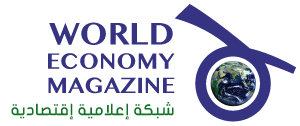All students should be aware that plagiarism is unsatisfactory, unethical, and most most likely grounds for control under their university or code that is university’s of. Exactly what occurs in the event that you plagiarize your self in a paper?
Truth be told, the clear answer is Yes. We’ve represented pupils who encountered severe effects since they utilized their particular work from a single paper an additional paper without citing it — often also by having www.essay-writing.org/research-paper-writing/ a professor’s authorization ! Everything you may see as benign, your college may see as being an act that is serious of dishonesty, and you’ll abruptly get before your school’s board of discipline.
What exactly is Self-Plagiarism? Opinions About Self-Plagiarism: Teachers vs. Pupils
Some pupils might have extensively published and researched works about particular subjects. They could then utilize excerpts or simply just a few sentences from that operate in a paper for the next program. In other situations, pupils risk turning in nearly the same project for two various courses. The assignments may overlap, and you may feel tempted to use the same writing—or sections of it—for both courses for example, if your theater and literature classes both studied Hamlet. Either way, you will probably find your self dealing with severe effects.
Academic research shows that views about self-plagiarism differ commonly across campus communities.
- About 60 per cent of both pupils and faculty try not to demonstrably know very well what self-plagiarism entails
- Almost 60 per cent of pupils usually do not feel it required to cite their very own past works
- About 80 % of surveyed faculty would start thinking about failing continually to cite a student’s work self-plagiarism that is own.
Numerous pupils surveyed genuinely believe that “ recycl ing” their writing, provided that it really is their work that is original just a powerful usage of their time. They even have a tendency to think that plagiarism just comes from the failure to cite the expressed terms of other folks.
While faculty might not hold opinions that are definite self-plagiarism, they could believe students who utilize portions of the previous works for current projects are making an effort to deceive them for some reason. Many teachers anticipate pupils to perform their complete projects from scratch without cutting corners by making use of excerpts they have already written.
In order to make things more confusing, many schools try not to especially deal with the problem of self-plagiarism. Alternatively, their codes of conduct just specifically ban plagiarism, that is mostly thought as making use of other people’s works that are creativeincluding words) without attribution. But, universities frequently accuse pupils of self-plagiarism under basic plagiarism prohibitions.
Because viewpoints about self-plagiarism vary so considerably from students to professors—and university codes tend to be ambiguous or quiet about the matter—many students who usually do not intend to cheat by any means wind up dealing with misconduct that is academic.
Feasible Charges for Academic Misconduct
Universites and colleges take scholastic misconduct really. Whilst every and each college features its own rule and policies, the feasible penalties often increase for numerous offenses. a first offense may mean a zero in the project or an F into the program. An additional may suggest educational probation, and a third may suggest expulsion through the college. Some schools, but, will expel students even for a very first offense.
Too numerous students face disciplinary procedures for one thing they never thought had been incorrect. Some pupils have also informed their teachers about their intentions to make use of past conclusions or sentences and heard no objections, simply to later on discover their schools are punishing them for plagiarism.
Contact Our Connecticut University Conduct Defense Lawyers to talk about Your Circumstances
At Duffy Law, we comprehend the ambiguity of self-plagiarism policies that are most, and now we have actually significant direct experience standing for the liberties of pupils who schools wrongfully accuse of scholastic dishonesty. Us online to speak with one of our experienced defense attorneys today if you face any college code disciplinary issues, please call (203) 946-2000 or contact.
